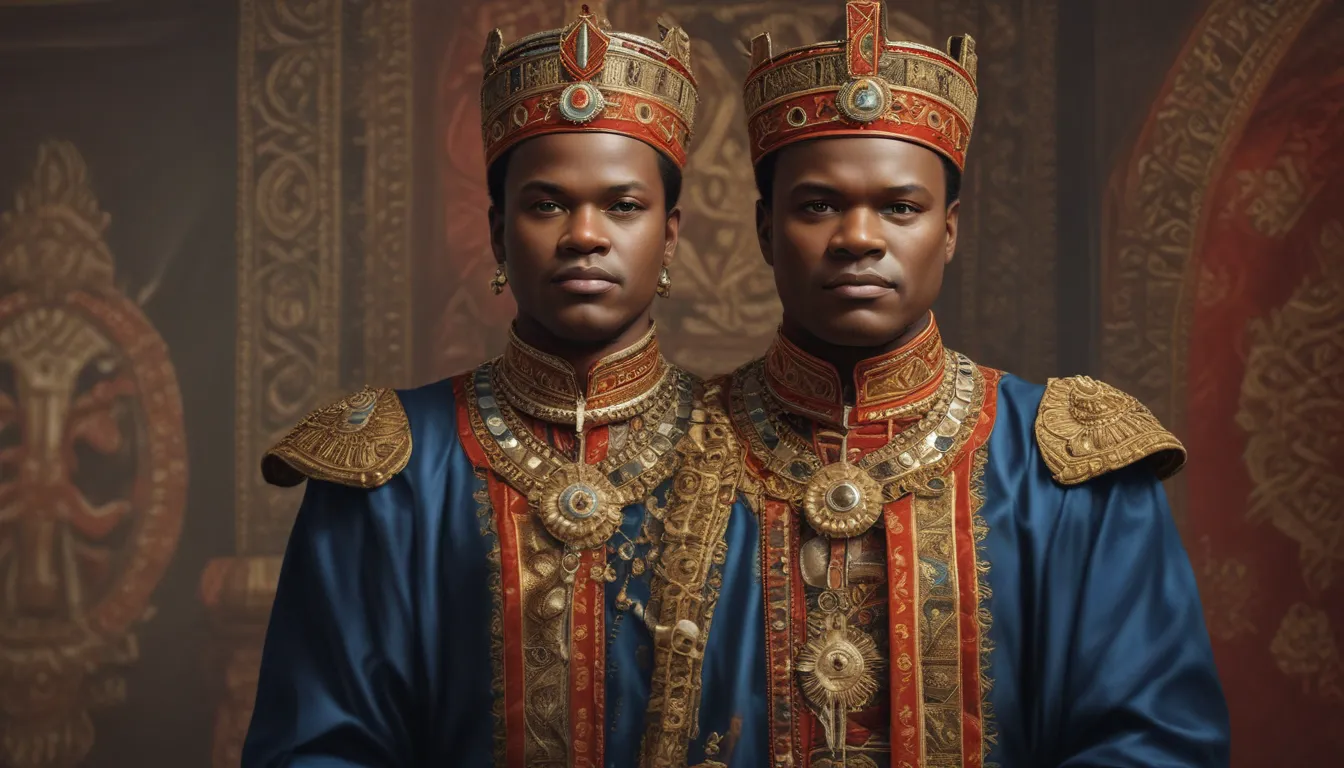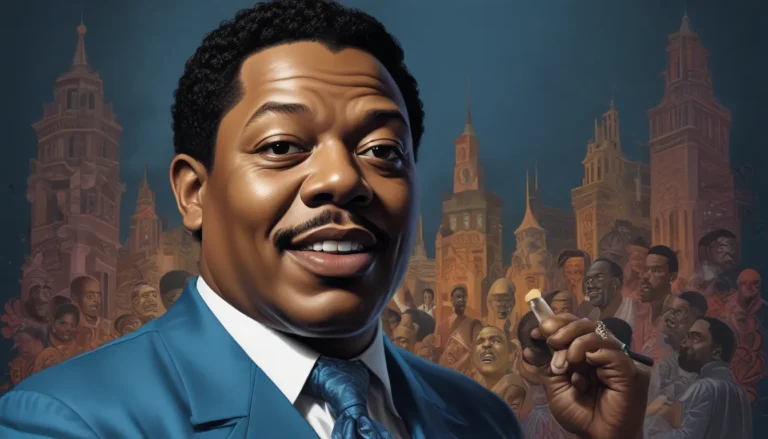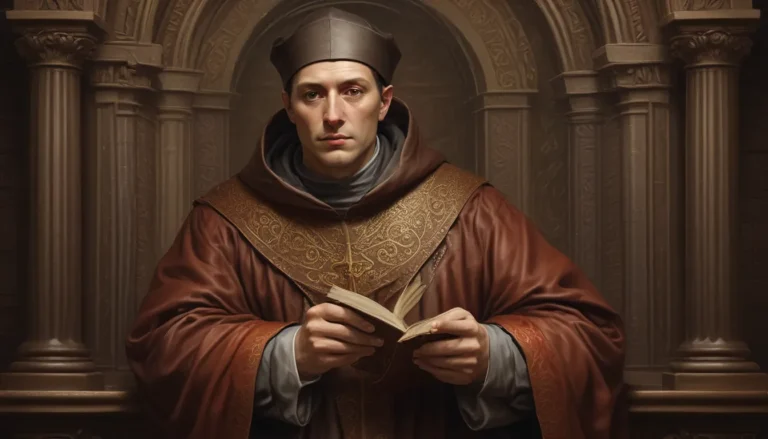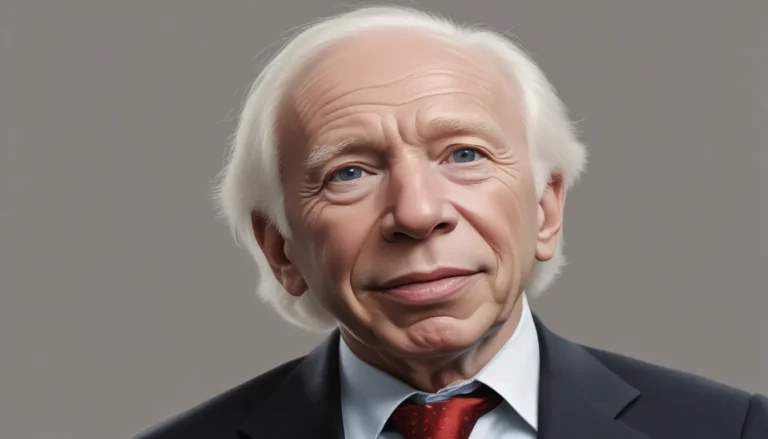The images in our articles may not match the content exactly. They are used to grab your attention, not to show the exact details in the text. The images complement the text but do not replace it.
Welcome to a journey into the intriguing world of King Mswati III, the enigmatic ruler of Eswatini. From his early ascension to the throne to his significant influence on governance and cultural preservation, there is much to uncover about this prominent monarch. Join us as we explore 13 captivating facts that illuminate the life, reign, and impact of King Mswati III on his country and the global stage.
The Youthful Monarch: Ascending to the Throne at 18
At the tender age of 18, King Mswati III became the reigning monarch of Eswatini, making him one of the youngest rulers in history. His early ascension to power marked the beginning of a reign filled with both controversy and development.
Embracing Tradition: Multiple Wives and Polygamous Lifestyle
Renowned for his polygamous lifestyle, King Mswati III has embraced a cultural tradition deeply rooted in Eswatini. With more than a dozen wives, the king embodies the role of custodian of this esteemed practice within his country.
The Grand Royal Residence: Ludzidzini Royal Palace
Nestled within a sprawling complex lies the Ludzidzini Royal Palace, the official residence of King Mswati III. This majestic abode boasts multiple residences, ceremonial areas, and accommodations fit for the royal family and esteemed guests.
A Wealthy Monarch: King Mswati III’s Personal Fortune
Ranked among the wealthiest monarchs globally, King Mswati III’s net worth is estimated to be in the billions. His wealth stems from diverse investments, ownership stakes in companies, and extensive land holdings.
Cultural Heritage: The Royal Reed Dance
An annual tradition steeped in cultural significance, the Royal Reed Dance sees thousands of young women gathering to present reeds to the king. This event showcases Eswatini’s rich heritage and remains a cornerstone of the country’s cultural calendar.
Governance and Power: King Mswati III’s Role
As the absolute monarch of Eswatini, King Mswati III wields considerable power in governance and decision-making. From appointing government officials to influencing legislative matters, his authority remains pivotal in shaping the nation’s trajectory.
Controversy and Criticism: A Reign Under Scrutiny
Despite his accomplishments, King Mswati III’s reign has not been without controversy. Criticisms from human rights organizations highlight concerns over democratic reforms and stifled opposition voices within the country.
Commitment to Development: Education and Healthcare Initiatives
Amidst the challenges, King Mswati III has shown dedication to enhancing education and healthcare in Eswatini. Through various programs and projects, he aims to improve access to quality education and medical services for his people.
Traditional Regalia: King Mswati III’s Distinct Attire
Distinguished by his elaborate traditional attire, including the iconic umhlanga cloak, King Mswati III embodies the essence of Swazi cultural heritage. This attire is a symbol of his cultural pride and is worn during significant ceremonies and events.
Resource Control: King Mswati III’s Authority Over Natural Resources
With control over vast natural resources in Eswatini, including minerals and forestry, King Mswati III’s influence on resource management remains central. Debates surrounding equitable wealth distribution persist in light of his extensive control.
Land Ownership Influence: The King’s Authority Over Land
In addition to resource control, King Mswati III holds substantial influence in land ownership matters. The ability to allocate land to various entities has raised discussions regarding land rights and ownership disputes within the country.
Cultural Preservation: King Mswati III’s Patronage
As a custodian of Eswatini’s cultural heritage, King Mswati III plays a pivotal role in preserving and promoting traditional practices, ceremonies, and dances. His support for cultural initiatives is instrumental in upholding the country’s rich cultural identity.
Global Engagements: King Mswati III’s Diplomatic Role
Despite Eswatini’s modest size, King Mswati III actively engages in diplomatic relations with other nations. Representing Eswatini at international forums and contributing to regional peace initiatives exemplifies his commitment to global engagement.
In conclusion, King Mswati III stands as a multifaceted figure, captivating the world with his unique lifestyle and impactful reign. His blend of tradition, controversy, and development has positioned him as a prominent leader on both local and international platforms. With a legacy that sparks debates on democracy and governance, King Mswati III continues to intrigue and fascinate individuals worldwide.
FAQs:
- How many wives does King Mswati III have?
-
King Mswati III is known for having multiple wives, with approximately 15 wives as of 2021.
-
What is the significance of King Mswati III’s name?
-
The name Mswati holds great cultural significance in Eswatini, translating to “the boy is good” in the Swazi language.
-
How did King Mswati III come to power?
-
King Mswati III ascended to the throne in 1986 following the passing of his father, King Sobhuza II, at the age of 18.
-
Is King Mswati III the richest monarch in the world?
-
King Mswati III is often regarded as one of the wealthiest monarchs globally, with estimates placing his personal fortune in the billions.
-
What role does King Mswati III play in Eswatini’s government?
-
As the absolute monarch, King Mswati III holds ultimate authority over the government, appointing officials and influencing legislative matters.
-
How has King Mswati III contributed to the development of Eswatini?
-
King Mswati III has spearheaded various development initiatives in education, healthcare, and infrastructure to elevate the standard of living in Eswatini.
-
Does King Mswati III have any children?
-
Yes, King Mswati III is believed to have more than 30 children, although the exact number remains unspecified.
-
What is the public opinion on King Mswati III?
- Public opinion on King Mswati III varies, with some praising his efforts in upholding Swazi traditions and promoting development, while others critique his autocratic rule and lavish lifestyle amidst prevalent poverty.
Embark on a journey of discovery into the intricate world of King Mswati III, where tradition, controversy, and development intersect to define an extraordinary monarch. Explore the facets of his life and reign that shape Eswatini’s narrative and resonate on a global scale.






